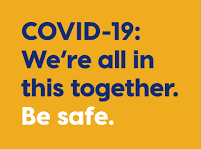Social distancing for the greater good is being commonly practiced around the world today. Indeed, in doing social distancing, many of us are spending more time with the same small group of people than we normally would. Depending on who you’ve decided to social distance with, you might find yourself managing kids, your partner and a job, all in a two bedroom condo. Or perhaps you’re living with just your partner and find yourself staring at each other day in and day out without an end in sight. Regardless of your situation, being in close contact with your partner for extended periods of time can lead to conflict in your relationship. Under normal situations, these conflicts might be eased by day to day distancing of work and social activities. However, in our current situation, we need other ways to ease these conflicts as work and visiting friends no longer provide a buffer.

Getting on each other’s nerves can be a challenge for everyone. On the flip side, dealing with this challenge then becomes beneficial for everyone. Trying to understand how your partner feels is called empathy and it’s a big first step in dealing with this challenge. Having empathy is the ability to understand and share in the emotions of someone else. But empathy doesn’t come easily to everyone and there is a good reason why. Genetics plays a role in our ability to experience empathy. Partially regulated by the oxytocin receptor (OXTR), this gene affects our ability to interpret someone else’s emotions. There are two variants for this gene. One variant leads to higher scores on tests of empathy, while the other variant leads to lower scores.

Being in a relationship where empathy may not come as easily, due to genetics, makes dealing with this challenge especially…challenging. Partner’s may end up with feelings like:

If your relationship is struggling with a lack of empathy due to genetic factors, practising compassion can help mitigate negative feelings towards each other. There’s a difference between empathy and compassion. Empathy is the ability to put yourself in someone else’s shoes and understand how they feel. Compassion doesn’t require that you understand how someone else feels, it simply involves a concern for someone else. Even if you don’t understand why your partner feels like they do, compassion means you still want to help them feel better. Since compassion does not necessarily require empathy, a critical component of compassion is communication. Working towards openly communicating your needs and desires with your partner is essential to bring compassion to a relationship that struggles with empathy.
Open communication is an important part of compassion, but is only the beginning of compassion. Compassion is a two way street. To be compassionate is to take the information your partner has openly given you and put it to good use. This could mean giving your partner space by leaving them alone. This gives your partner an opportunity to unwind with “me” time. It could be as simple as handing them the remote while they put on their choice of television without feeling judged. Judging each other brings up another important part of compassion. Compassion is about not judging or accusing. It is about trying to help the situation and take it to a better place. People that are genetically predisposed to experience empathy more easily put themselves in their partner’s position. This can ultimately lead to reduced judgement of their partner because they understand how they feel. Compassion requires that we make that choice even if we don’t necessarily understand the reasons behind a grievance.

In these trying times where we stand apart to stand together, listening to our partners, whether it is through a stronger ability to empathize, or through communication and compassion, is essential. It is critical to handle relationship conflicts and stop us getting on each other’s nerves. It helps mitigate most challenges of living in close quarters. We need to understand how we respond to our partner and how to bring compassion, if necessary, to our relationship. This is an essential skill we need because in this fight for our lives, we must live together in close quarters for as long as is needed for the greater good.


